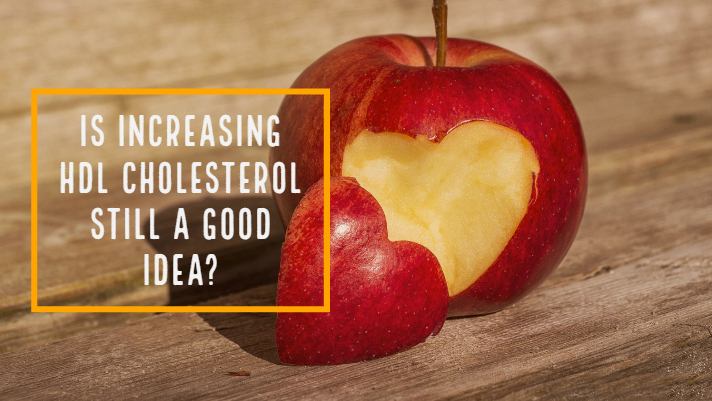
Raising HDL cholesterol may no longer be a very good Idea after all.
We popularly believe for last few years that HDL cholesterol is the “good” type of cholesterol. Also the higher your HDL levels the lower your cardiac risk. Raising HDL cholesterol levels is considered a very good idea but several recent clinical trials have questioned this opinion.
Why HDL Is Considered “Good”
HDL and LDL are types of lipoproteins (large complexes of lipids and proteins). Their role is to transport cholesterol in the bloodstream. Thus, cholesterol that is being carried by HDL is referred to as HDL cholesterol.
Some evidence suggest that one of the main important function of HDL is to transfer excess cholesterol from cells and tissues and carry it to the liver. Liver processes excess cholesterol. HDL also removes cholesterol deposited in the walls of blood vessels which may contribute to atherosclerosis (plaque deposits) in blood vessels. So, having higher HDL cholesterol may mean the removal of a lot of excess cholesterol is from blood vessels which eventually leads to a better outcome for the body.
There are some epidemiological data indicating that people with lower HDL levels have higher cardiac risk than those with higher HDL levels. Following these studies, increasing HDL levels seems like a good idea. Hence we know HDL type cholesterol generally as good cholesterol.
How can we increase HDL cholesterol?
Genetic and environmental factors have strong relations to a person’s HDL levels. Women tend to have higher HDL levels than man. Co-existing conditions such as diabetes and metabolic syndrome lead to lower HDL levels. Lifestyle factors like being overweight or sedentary tend to lower HDL levels. Diet high in trans fats reduce HDL and increase LDL.
Medicines used to control cholesterol levels, usually reduce LDL cholesterol but have relatively minor effects on HDL cholesterol. Statins are the most common drugs which doctors prescribe to reduce cholesterol which has minimal effect on HDL. A moderate increase has been noted with fibrates and niacin use.
Weight control, regular exercise and healthier dietary choices have shown a positive effect on increasing HDL.

Why increasing HDL beyond a moderate amount is not a very good idea?
Overall, increasing HDL levels a positive thing and the measures to increase HDL levels are mostly lifestyle factors only. Because of this, there was an increasing interest in research to develop drugs which could raise HDL levels in the body. Unfortunately, the trials of these drugs have been disappointing. Proposed drugs which were trialled, did increase the HDL levels significantly but failed to show any clinical benefit. They did not show any decline in cardiovascular risk while one of them even showed an increase in cardiovascular risk.
One study assessing the benefits of niacin addition to Statin therapy (AIM-HIGH, 2011) suggested an increased risk of stroke among patients taking niacin. Also, it failed to show any benefit from increasing HDL levels. Scientist researched the role of genetics for variants that increase HDL levels. The evidence seemed unable to show that people with these variants had any reduction in cardiac risk.
These studies and trials have left everyone questioning whether increased HDL levels have any benefits. Increasing HDL cholesterol levels by treatments of different kinds have not resulted in improvements in outcome.
For example, in a study done in Ontario, Dr Ko and his colleagues looked at years of data from about 630,000 people. Those with lower-level HDL were more likely to die of cardiovascular complications, but the risk did not drop steadily as good cholesterol levels rose. Instead, it dipped, then eventually reached a plateau. According to this study, people with HDL of about 40mg/dL had roughly the same risk as those with about 80 mg/dL. And death risks actually increased for those with extremely high HDL levels. Which suggests, HDL may just be a fatty substance in the whole scenario. For which moderate / recommended levels yield better benefits.
So, what’s the new theory?
To sum up, by increasing HDL by various means such as drugs, niacin or genetic variants, researchers could not find strongly positive effects.
Thus, trials are on way to find ways to increase or improve the function of, the small type HDL particles who are responsible for scavenging of cholesterol and reducing cardiac risk. (HDL itself has two types: small HDL and large HDL) While we keep our eyes on new research on this topic, we can continue to concentrate on good things such as healthy weight, exercise and smoking cessation which both increase HDL naturally and reduce our cardiac risk.






